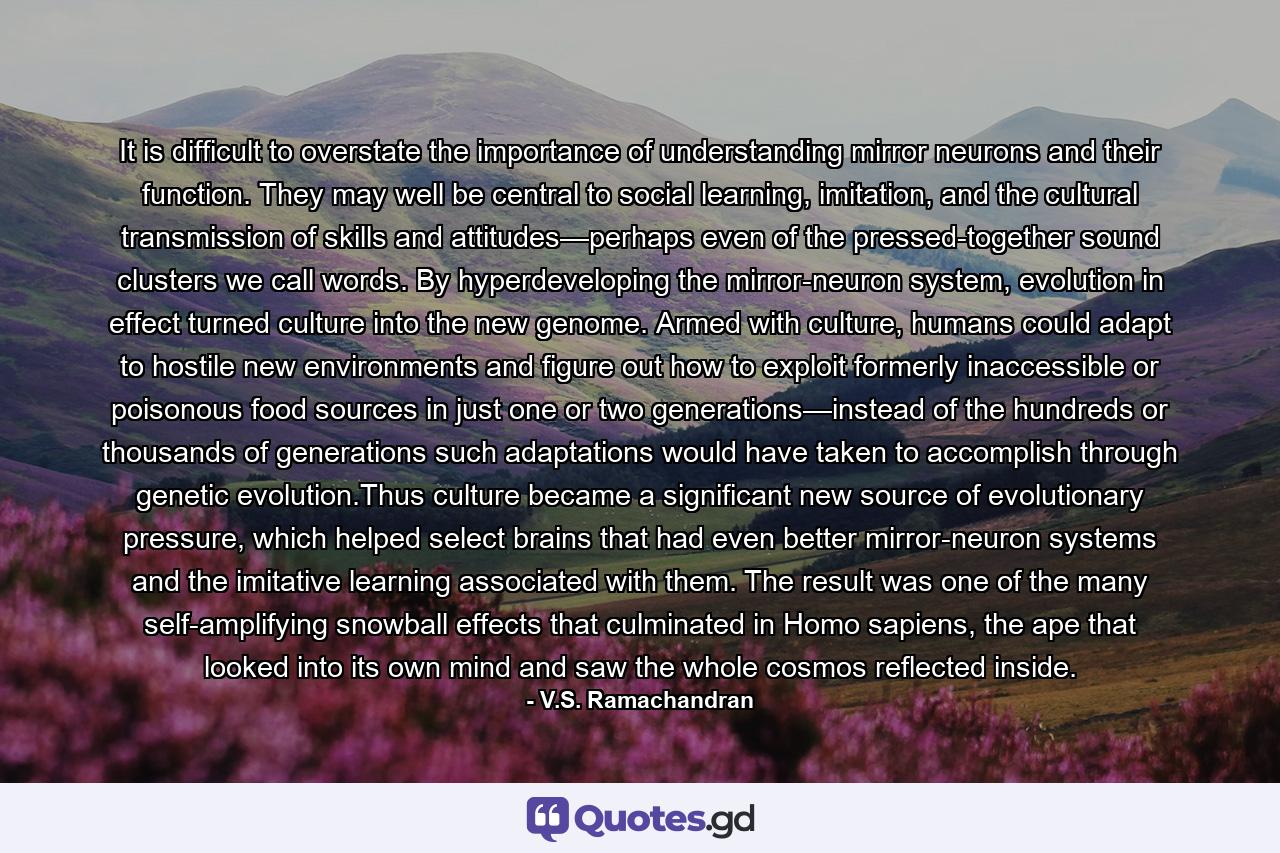It is difficult to overstate the importance of understanding mirror neurons and their function. They may well be central to social learning, imitation, and the cultural transmission of skills and attitudes—perhaps even of the pressed-together sound clusters we call words. By hyperdeveloping the mirror-neuron system, evolution in effect turned culture into the new genome. Armed with culture, humans could adapt to hostile new environments and figure out how to exploit formerly inaccessible or poisonous food sources in just one or two generations—instead of the hundreds or thousands of generations such adaptations would have taken to accomplish through genetic evolution.Thus culture became a significant new source of evolutionary pressure, which helped select brains that had even better mirror-neuron systems and the imitative learning associated with them. The result was one of the many self-amplifying snowball effects that culminated in Homo sapiens, the ape that looked into its own mind and saw the whole cosmos reflected inside.
